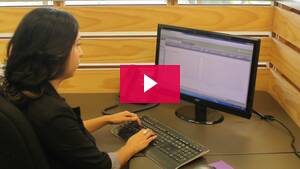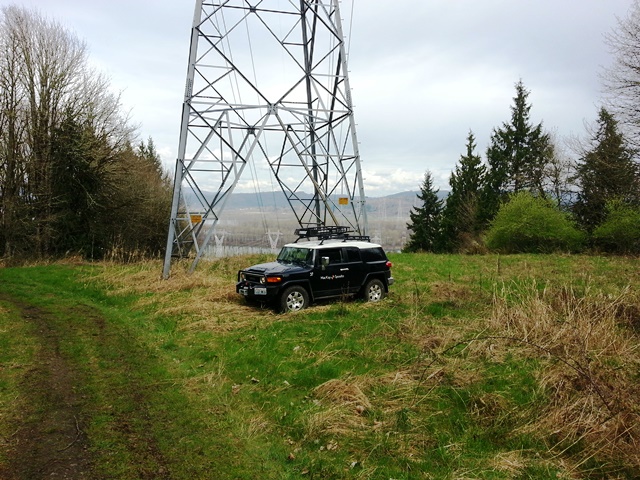Wear Tennis Shoes (Tip #5 in PI Toolbox)
- Lisa Schauer
- Transportation & Public Works, Public Involvement
Successful political campaigns depend on mobilizing people to vote. According to the US Census Bureau, leaders running for political office shouldn't generally expect more than 60% of the constituents to vote. So, aspiring politicians with the need to build name recognition among voters must resort to "door belling" -- a concept I hadn't been introduced to until a couple of years ago when a friend asked me to door bell for a local community leader with political aspirations. I believed in this leader's message and wanted to help share who he is, what he stands for, and why our neighbors should vote for him. I door belled for 4 hours and I was exhausted. I have to confess I can't imagine door belling every day for two to eight hours! This is the truest form of grassroots politicking and commitment to a cause.
While I knocked on doors, I met all kinds of people: those interested in politics, those disgusted by politics, and those who didn't want to talk. Ringing door bells allowed me to interact directly with my community. You never knew who would open their door and what story they may be interested in telling if I took the time to listen. My tennis shoes became an essential tool in completing my task.
In Tip #5 of our Public Involvement Toolbox, I'm going to emphasize the value of door to door stakeholder outreach to gather valuable public input.
Stakeholder Database Made Easy (Tip #4 in PI Toolbox)
- Marissa Delgado
- Transportation & Public Works, Public Involvement
One important element of your Public Involvement effort is keeping track of all your project’s stakeholders. This can be especially vital when project funding and environmental processes require specific public outreach notifications (ex: SEPA or NEPA requirements). This is a task that can quickly become overwhelming once you consider your complete stakeholder list and additional information you are wanting to keep track of, such as:
- Personal contact information
- Address and location information
- Attendance at project events
- Distribution of project collateral
- Other correspondence or specific interaction
A thorough and consistent stakeholder database is key in order to utilize it as the vast information tool it is. A complete database is full of great statistics and facts regarding your project achievements as well as an important historical reference. In the video below I share a database program that we use called Smartsheet that we have found great success in. It integrates well with Google Mail, can easily be exported into multiple other formats, and also allows for all of your project team to view the most updated information regarding your stakeholder outreach in real time. This feature can be invaluable, especially if you have more than one point of contact for stakeholders to reach out to with questions and concerns.
I'd love to hear from you about tools you have used to track your stakeholder outreach. Call, email, or message me on Linkedin.
For more tips and trends regarding Public Involvement, see our Public Involvement Toolbox.
We Can All Make a Difference...
- Kris Strickler
- Transportation & Public Works
Advocate. Advocating. Advocacy. These are words that most people correlate to some sort of political movement. The words, like many others, speak to an audience in an emotive way. They naturally engender a feeling of persuasion. The words tend to generate a sense of complexity, or individual disposition, that sometimes leaves us with an impression that you have to “bleed” for a cause to be relevant, or you have to take risk and be aggressive in your approach to support what you believe. People I’ve talked to feel that the terms “advocate” and “lobby” are interchangeable and many more, unfortunately, feel as though their energy and support for a topic will go unheard, or that they can’t advocate for their beliefs because they simply don’t feel equipped to effectively argue their need.
The fact is, all of us are advocates at some point in our lives, and most of us advocate on a daily basis. Whether it’s a father pleading with his family physician to prescribe medication for his sick son, or that son later in the evening pleading with his father to let him go out and play rather than rest, both are demonstrating their own personal form of advocacy. Most of us take those minor doses of advocacy in stride, and frankly, don’t even categorize them as such because we simply see them as part of our daily routine. I once found myself arguing with my brother over what type of brake pads to use on my vehicle, he said the cheapest, and I wanted to ones with the warranty. Both would work, but one provided me with a better long-term operation and maintenance cost for my vehicle, so I “advocated” for my option. Which brings me to the point, which I’m sure you’ve been waiting for; all of us are equipped to advocate for those central things in our lives that are essential, or “givens”, for a thriving economy and an improved quality of life, we just may not know that we are.
Navigating in the Digital Age
The Evolution of Not Asking for Directions
I was cleaning out my car the other day. It’s normally a fairly tame task, in fact the only time it can get a little exciting is when cleaning out under the seats. There’s something about not being able to see what you’re doing, reaching up at awkward angles, rooting around in the wiring and seat railings never knowing what long lost treasure, or trash, you may find. Amongst the spare change and a leaking ink pen, I fished out an old mainstay – a road map. I got a little nostalgic thinking about how things have changed from the last time I pulled out a road map, which is getting close to a decade ago. It was my tool for driving back and forth across the country while changing duty stations when I was in the military. The last line of defense from getting lost, and perhaps the only thing worse than getting lost….having to stop and ask for directions.




